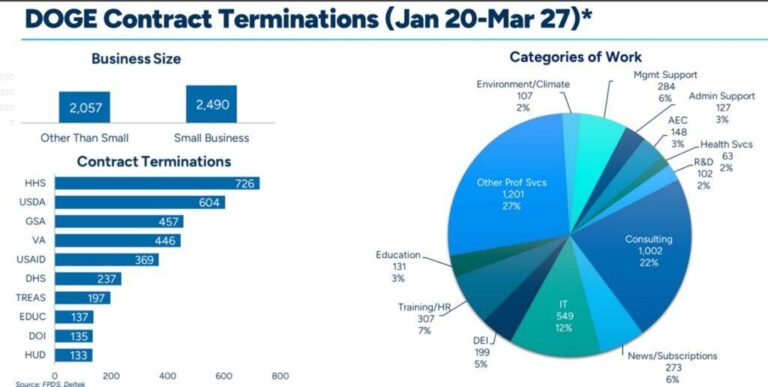Texas Agencies Cancel $18 Million Contract Over Unused Facility Concerns
Termination of Major Contract Due to Facility Inactivity
In a notable move, the Texas Department of Family and Protective Services (DFPS) together with the Health and Human Services Commission (HHS) have ended an $18 million contract with Family Endeavors. The decision follows revelations that the funded facility remained largely unoccupied, failing to deliver the community services it was intended to provide. This development sheds light on persistent challenges in managing state-funded social programs and raises critical questions about fiscal responsibility and oversight within Texas’s public service agencies.
Details Behind the Contract Cancellation
The contract, originally designed to enhance social service infrastructure, was terminated after reports indicated the facility stayed unused for over 18 months. Despite the substantial financial investment, audits revealed that the funds were scarcely applied toward operational activities or staffing. This lack of progress prompted both DFPS and HHS to halt the agreement in April 2024, signaling a major setback in their efforts to expand community support services.
- The center remained vacant without active programs or residents for more than a year and a half.
- Financial reviews showed minimal expenditure on program development or personnel.
- Stakeholders criticized delayed disclosures and unmet contractual commitments.
| Contract Attribute | Information |
|---|---|
| Contract Amount | $18 Million |
| Facility Status | Vacant, No Occupants |
| Contract Length | 2 Years |
| Termination Date | April 2024 |
Accountability Issues and Public Reaction
Family Endeavors, the nonprofit entrusted with managing the facility, faced intense scrutiny after the contract’s cancellation. Investigations uncovered multiple compliance failures, including missed reporting deadlines and inadequate staffing levels. These shortcomings fueled public concern over the stewardship of taxpayer money and the effectiveness of government oversight.
| Investigation Focus | Findings |
|---|---|
| Facility Utilization | No active programs; unused for over 8 months |
| Contract Compliance | Missed quarterly reports; staffing requirements unmet |
| Funding Usage | Allocated $18 million but largely unspent on operations |
| Government Action | Contract terminated; audit initiated |
- Calls for greater transparency and responsible fund management have intensified.
- Officials stress the importance of improved oversight for future contracts.
- Family Endeavors has committed to cooperating fully with ongoing audits.
Lessons for Future Public-Private Collaborations in Social Services
This contract termination serves as a cautionary tale for public-private partnerships in the social services sector. It underscores the necessity of robust oversight mechanisms to ensure that public investments translate into tangible community benefits rather than idle infrastructure. Moving forward, agencies and policymakers must embed clear performance metrics and contingency clauses within contracts to safeguard public resources.
Key strategies to enhance future partnerships include:
- Implementing real-time tracking systems to monitor facility usage and service delivery.
- Establishing open communication channels among stakeholders to promptly address operational challenges.
- Adopting funding models that tie payments to measurable outcomes rather than fixed schedules.
- Conducting regular independent evaluations to verify program effectiveness and facility management.
| Challenge | Proposed Solution | Expected Benefit |
|---|---|---|
| Underutilized Facilities | Flexible Adaptive Use Policies | Optimizes resource allocation |
| Transparency Deficits | Live Data Dashboards | Builds public trust and oversight |
| Rigid Contract Terms | Flexible Funding Arrangements | Enhances responsiveness to changing needs |
| Service Delivery Gaps | Frequent Independent Reviews | Ensures quality and accountability |
Enhancing Transparency and Accountability in Contract Oversight
To rebuild public confidence and prevent future mismanagement, agencies must adopt stringent transparency protocols throughout contract lifecycles. This includes comprehensive documentation of deliverables, routine progress updates, and publicly accessible records verifying contract fulfillment. Regular independent audits are essential to detect inefficiencies and confirm appropriate use of funds, particularly in high-value agreements.
Additional recommendations to strengthen accountability include:
- Mandatory performance evaluations with clear benchmarks and penalties for non-compliance.
- Community engagement forums to gather feedback on service impact.
- Deployment of digital dashboards for real-time contract monitoring.
- Robust whistleblower protections to encourage reporting of irregularities without fear of retaliation.
| Recommendation | Anticipated Outcome |
|---|---|
| Regular Independent Audits | Early identification of misuse or inefficiencies |
| Digital Monitoring Tools | Enhanced transparency and accountability |
| Community Feedback Sessions | Greater public involvement and oversight |
| Strict Contractual Enforcement | Improved compliance and performance |
Conclusion: Moving Forward with Improved Oversight
The cancellation of the $18 million contract between Texas state agencies and Family Endeavors highlights critical issues in managing public funds and ensuring facility utilization. As investigations continue, this case serves as a pivotal example of why transparency and accountability must be central to government contracting processes. Future efforts will focus on implementing stronger safeguards to prevent similar situations and to maximize the impact of social service investments for Texas communities.




